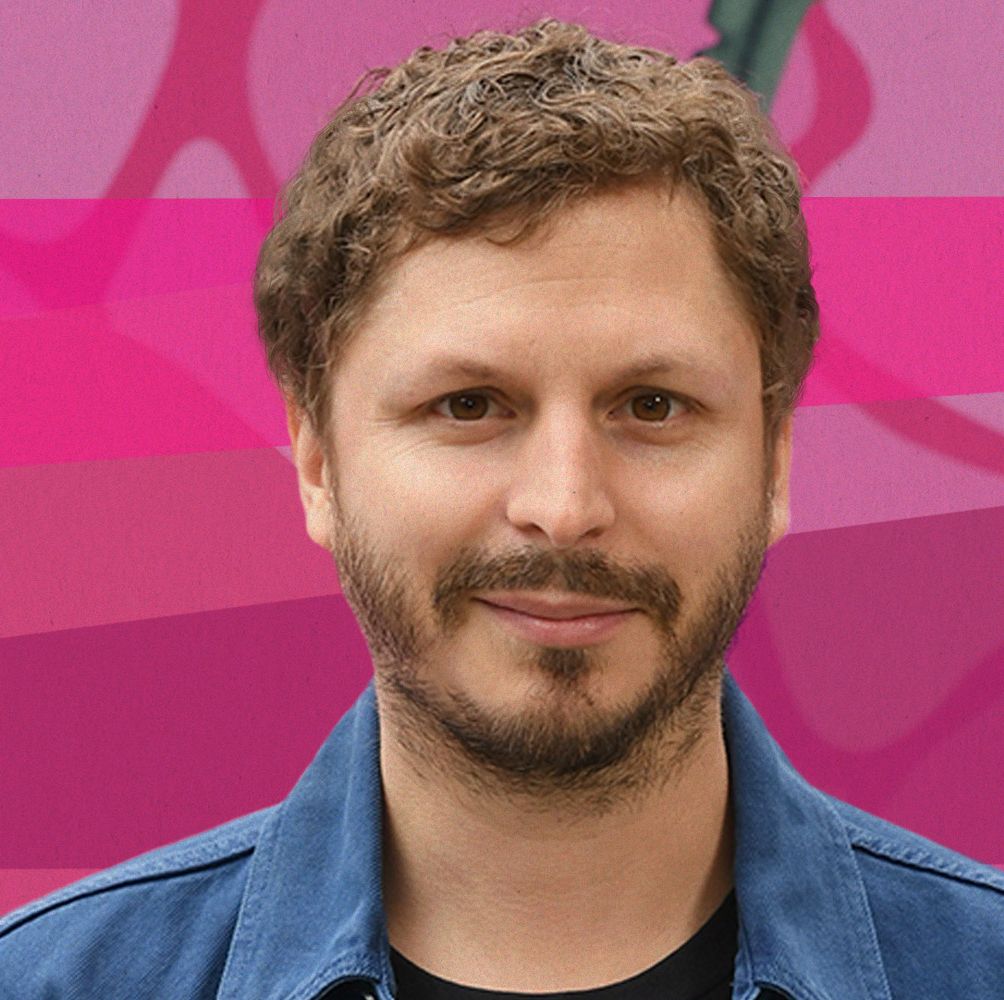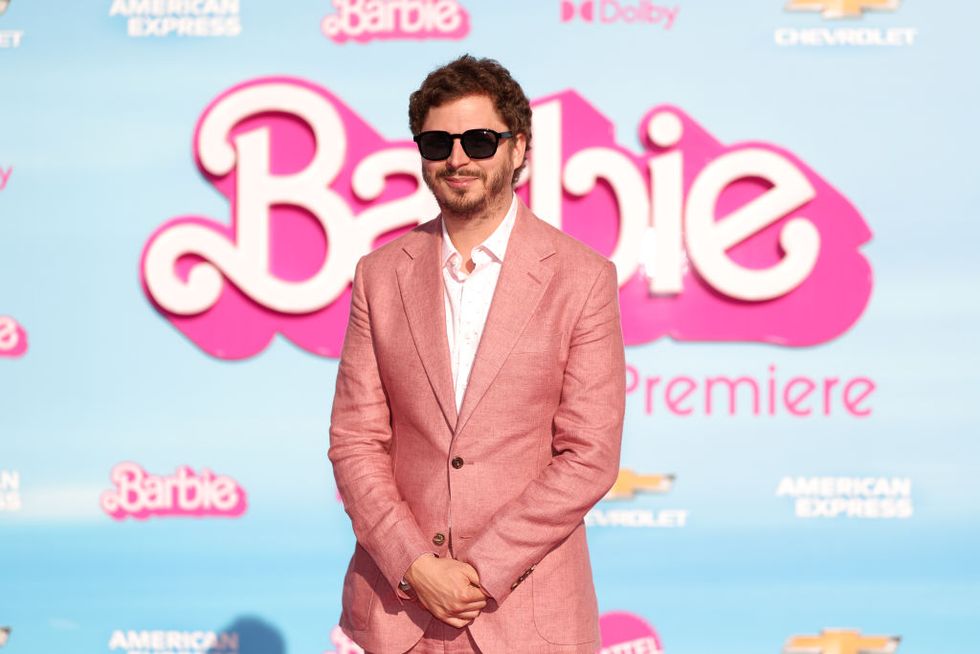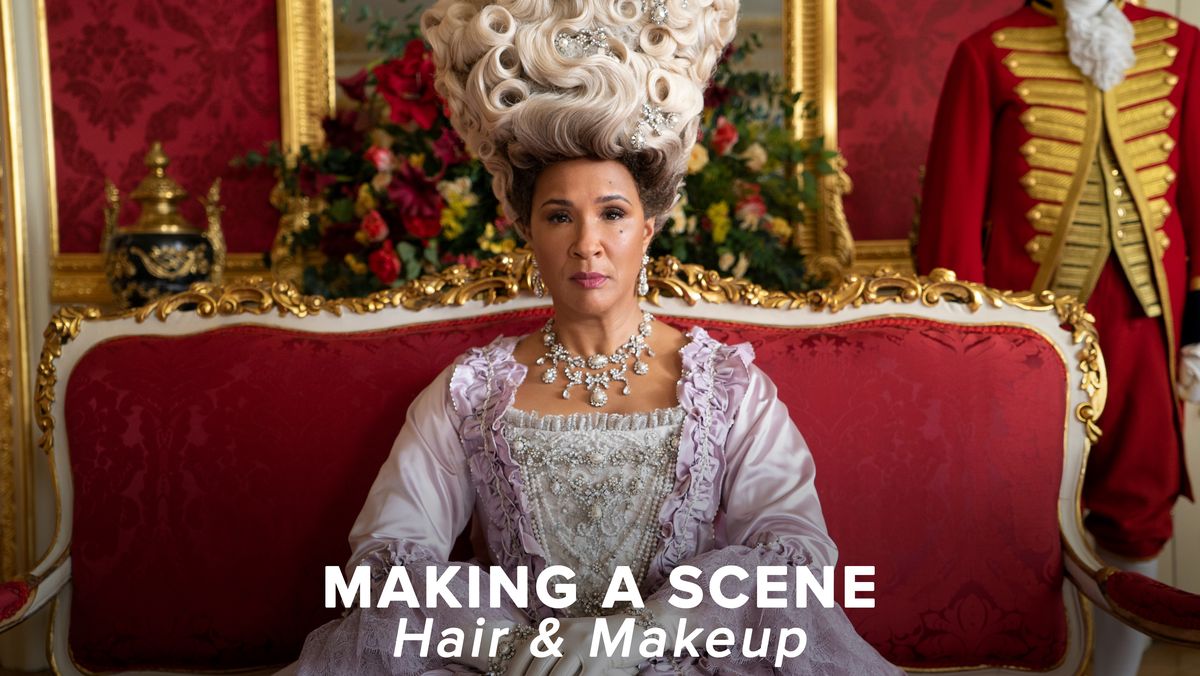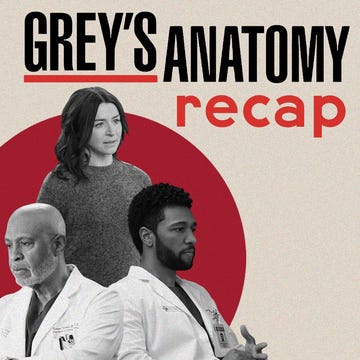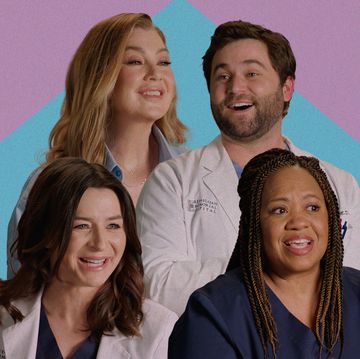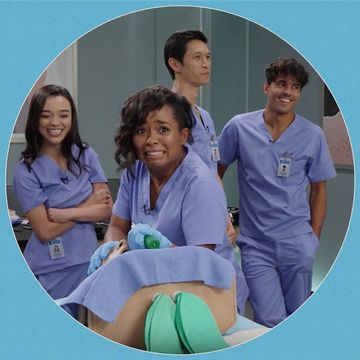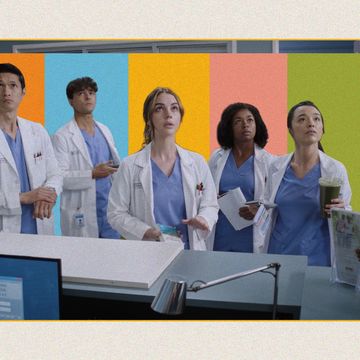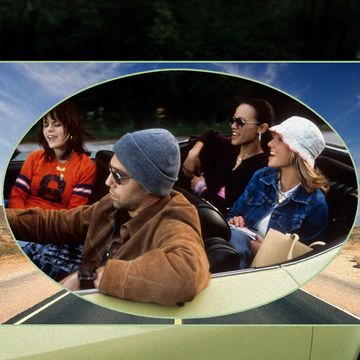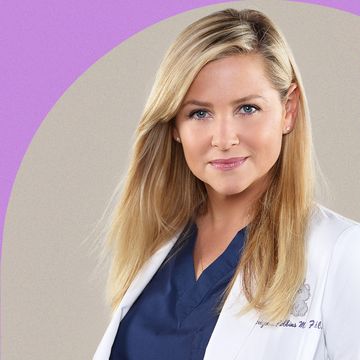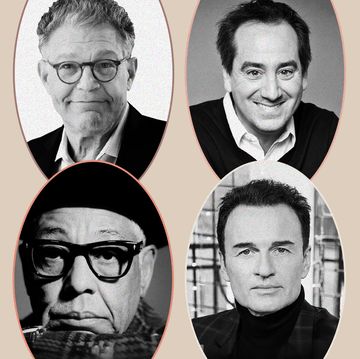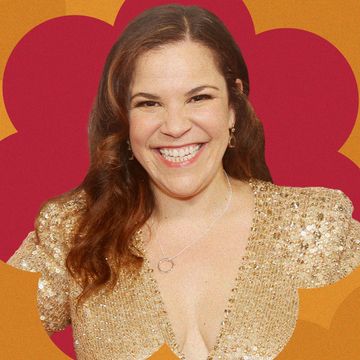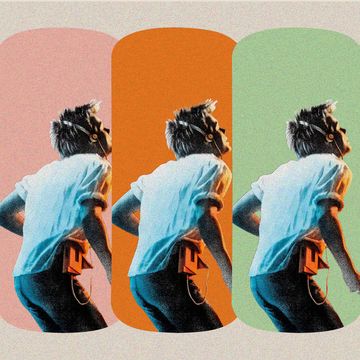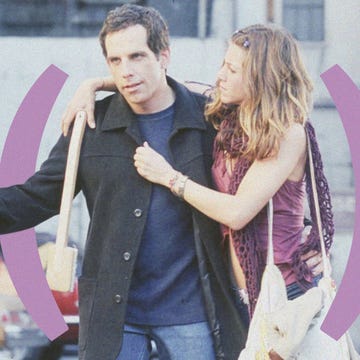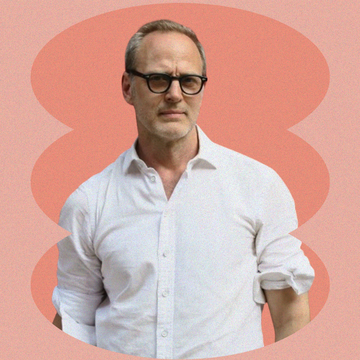The following interview was conducted prior to the SAG-AFTRA strike authorization.
Michael Cera has been acting for a long time. The now-35-year-old began acting at the tender age of 10 in Ontario, Canada, where he was born and raised. But 25 years and dozens and dozens of films and TV shows behind him haven’t at all deterred Cera from the Hollywood life. In fact, he says he’s set on looking forward and not backward, which bodes well for a guy who has multiple projects coming out this summer, including a small role in Netflix’s anthology sci-fi series Black Mirror, the summer sensation Barbie, and a quiet indie drama, The Adults.
“It doesn’t feel like a crazy pace to me,” says Cera when asked if having such a slate of work is normal for him.
With a seemingly eternal baby face, despite facial hair grown for personal reasons and/or characters, and a soft, slightly nasal speaking voice, Cera has managed to run the gamut with the types of films and shows he’s been a part of. He’s done a range of voice acting, including The Lego Batman Movie and Sausage Party, but he’s also played iconic, offbeat characters like George Michael Bluth in the hit series Arrested Development and Paulie Bleeker in the breakout indie film Juno. Let’s not forget his turn as an action hero in Scott Pilgrim vs. the World. And he’s also hit more serious notes on both the stage (Kenneth Lonergan’s This Is Our Youth) and screen (Molly’s Game, Gloria Bell). The point is, you might look at Cera and have this idea that he’s one-note, but you’re not giving the kid — er, rather, man — enough credit.
His latest role further expands the range he’s known for. In The Adults, which will be released in select theaters on August 18, Cera plays Eric, the absentee big brother to two sisters (Hannah Gross and Sophia Lillis), all orphans and all struggling to cope with loss as they try to keep jobs, friends, and a brave face for one another. Shondaland talks with Cera about taking on the role and the film, which was written and directed by his friend Dustin Guy Defa; the types of projects he’s interested in pursuing; and his greatest role to date: becoming a father.
VALENTINA VALENTINI: It’s hard to pin you down as a certain type of actor who takes a certain type of role. How do you choose what you want to be a part of?
MICHAEL CERA: I guess I just choose based on who’s involved and how much confidence I have in going forward, in not looking like a fool. I often like to work with people that I’ll learn from, and that gets me excited about something. When there’s someone like Sophia and Hannah involved, who I admire very much and would love an opportunity to get to play off of and watch them work, then that’s something I want to be a part of. And same with Dustin; I admire his approach to directing and working with actors. Plus, there’s all kinds of other considerations, like where you are going to be living for a few months. I’m, like, 35 now. I don’t really want to go back to Shreveport [Louisiana] anymore. I spent three months living in the Hilton in Shreveport, and I feel I don’t need to do that again. I mean, Shreveport’s great. I could do a week there very happily, but I don’t need to live there.
VV: What do you mean by not looking like a fool? As in playing foolish characters?
MC: No, I don’t mean the character. When you’re an actor, you try and put your best foot forward at doing your part of the job, and then you put all your work into the hands of the people who are putting the movie together. So, you don’t really know how it will all turn out. You read a script, and you sort of see a movie in your head, and that’s your personal goal that you’re aiming for yourself, or I am, as an actor. But what actually happens with all the work you do is so out of your hands, so it’s a leap of faith, and it’s an exercise in trusting your collaborators. So, that’s what I mean by not making a fool of yourself. You just hope that the thing will come out kind of close to where you’ve placed your hopes for it.
VV: What in particular about The Adults made you want to take on the role of Eric?
MC: I got involved with this movie because Dustin is a friend of mine. We’ve worked together once before, back in 2016 on his film Person to Person, and I’ve stayed aware of what projects he’s been developing. He’s actually been writing like crazy — I think he has like five feature scripts, and he was just trying to get the next one going for himself. But when he started developing this one, he talked to me about it early on, and I became involved at that [point]. I just love Dustin’s writing very much. His scripts are really special.
VV: Your character Eric is very good at lying. It comes really easily to him, whether it’s to his sisters or his friends, or while making a lot of money in poker games. Can you speak to this character’s relationship with the truth?
MC: Well, that’s part of the big mystery of the character for me, and part of why I was drawn to him. Reading it and performing it, the question was always “Why is he doing that?” And I think there are a lot of answers, but it does seem to be some sort of control issue or something: needing to be somehow in power in a situation or at least not feel like he’s lost control or lost power, which is this thing that he’s also grappling with in his relationship with his sister Rachel [Hannah Gross]. None of it is really fleshed out in the movie, and I’d prefer it that way because I think there are kind of a million answers that go into that question. But I was intrigued by him, and I was also reminded of some people that I know with these traits. It was an interesting exploration into thinking about the people that I know that he reminds me of, and kind of trying to come up with this new empathy for them and an understanding of why they are the way they are.
VV: I feel like this is often a dreaded question among actors, but I’m going to ask it anyway: Do you have a process?
MC: I don’t have a process per se that I would apply to every job. It’s more project specific. On The Adults, it was very useful for me to think about two people in my life and [make] my character sort of a composite of them and what Dustin’s intentions were. But that was just sort of naturally what occurred because of the way the character was written. I don’t have a process that I apply broadly.
VV: I’m assuming you wouldn’t want to reveal who those two people are.
MC: They’re just people in my life who nobody would know. But no, I don’t see any real value in telling them publicly that I’ve noticed their psychological issues over the years [laughs].
VV: Agreed. But now, whatever friends or family you have who might read this perhaps will wonder if it’s them!
MC: Well, that’s why I like for everyone I know to have some doubt [laughs]. Just to expand on that, though, it was just a few personality qualities I took from those people. It wasn’t about sharing behaviors with the characters. To be honest, as an actor working in a movie, you don’t get to rehearse that much — you have to just commit to something. You have a plan going in, and you’re just terrified, so that is something to hold onto for me. Like, if I keep that person in my head, at least I can’t get too lost. You just have to quickly build a little life raft for yourself and hope that it works out.
VV: There are some song-and-dance and odd character scenes in this film. What was it like to perform those scenes?
MC: It was interesting how we developed those because they’re all written into the script, but we really had to create the voices and the characterizations off the page. And the way we would do that is just by sitting around and trying different things out. The challenge was to not create voices or characters that were too alike or had too much overlap, so each one had to have its own lane. I was worried at one point that Hannah was going to completely lose her voice doing one of her characters because she was speaking with a very low, grating voice, and it was very physical. Watching her do it, I was like, “Oh, my god.”
VV: You are a producer on this film, and that can often mean different things to different people. What did that role mean for you in this film?
MC: I was a creative producer in that I was involved in an early stage with Dustin and the script and trying to bring financing together. But that’s kind of the extent of it. I didn’t rent the trucks or anything. I don’t think I’m a producer, really. That’s a life’s commitment. The people who put productions together, that becomes your whole life, and it’s a really hard job; it’s a really specific and important job, but that’s not what I’m doing.
VV: I started this interview off by saying you’ve done so many different types of projects. I’m curious: Is there something you have not done yet that you really want to sink your teeth into?
MC: Personally, I don’t have those kinds of machinations in my head about specific things for my career. I mean, I think that it would be fun to do a big television series. As an actor, that’s really fun.
VV: À la Arrested Development?
MC: Yeah. Or something like that. Something that’s a long-form story basically. Something like The Sopranos, these things where you can really become novelistic and create very rich TV for people to watch and as an actor to work on. I don’t have a specific thing in mind, but just vaguely that notion is very appealing to me.
VV: So, you’re not like, “I really want to play Richard III”?
MC: No, I don’t have a particular part in mind.
VV: You and your wife, Nadine, recently became first-time parents. What has it been like to jump into the role of fatherhood?
MC: I love fatherhood. I mean, I love my son. [Pauses.]
VV: Anything else to add to that?
MC: [Laughs] I hope that becomes a quote that’s attributed to me about my son. Just: “I love my son.” No, I mean, not to be cheesy, but it is a new role. It’s a new position. And it’s funny when you see yourself through your kid’s eyes. You’re like, “Yeah. I’m his father.” And you kind of cast yourself back to childhood and remember your own father in that kind of a role. You have to fake your way through it until it feels comfortable. But it’s very beautiful, and my son is almost 2, and it’s a really fun time. It’s getting more and more fun and beautiful all the time. It’s exciting.
Valentina Valentini is a London-based entertainment, travel, and food writer and is also a senior contributor to Shondaland. Elsewhere, she has written for Vanity Fair, Vulture, Variety, Thrillist, Heated, and The Washington Post. Her personal essays can be read in the Los Angeles Times and Longreads, and her tangents and general complaints can be seen on Instagram at @ByValentinaV.
Get Shondaland directly in your inbox: SUBSCRIBE TODAY
